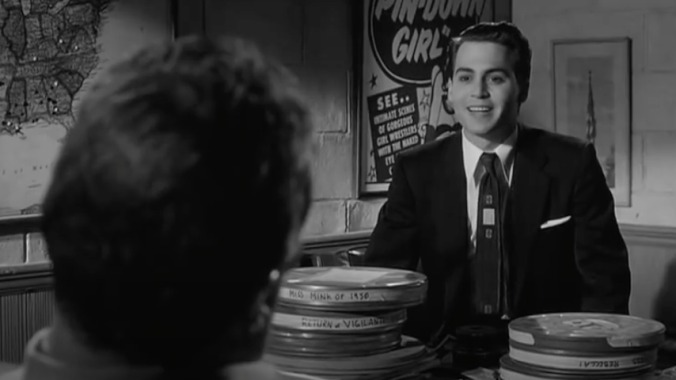The 10 Best Comedy Biopics
Screenshot via YouTube
It’s a myth that biographical films have to be serious-minded dramas—a lot of historical figures were very funny, and their lives can easily be adapted to fit a light-hearted, slyly ironic narrative. One of the most iconic comedic biopics is Tim Burton’s Ed Wood, which turns 30 this week and is the non-fantasy highlight of the eccentric director’s career. It’s emblematic of the delights of the comedy biopic because it applies a sincere, emotional dramatic framework to what seems on first glance like a pithy, unremarkable person and story. It’s this gulf between what we usually expect from biopics and how silly the film we’re watching is that proves to be the comedy biopic’s greatest weapon. They rarely are making fun of their subject, but rather the tropes and cliches of a genre that takes itself too seriously.
Ed Wood isn’t the only comedy biopic of note this time of year—Saturday Night is about to drop. Jason Reitman’s account of the hectic final hours of a pre-Saturday Night Live world is filled with 30-and-under actors pretending to be 1970s-era comedians, and while it’s unconfirmed if they match the wild comic instincts of Dan Akyroyd, John Belushi, or Rosie Shuster, it’s clear that there’s still a market for films that know how funny history can be. Here’s 10 films that put the laugh in biographical (for the sake of the joke, please pretend that works), in chronological order.
Ed Wood (1994)
The crown jewel of the funny biopic, Tim Burton’s greatest film realized that love letters to cinema don’t have to be slavish, fawning odes to filmmaking, focusing on a historically maligned and marginalized artist whose dedication to the medium constantly conflicted with his reduced talent or resources. Ed Wood (Johnny Depp) is a Z-list director making crummy genre films interspersed with the occasional proto-trans B-movie. The precision and tenacity of Depp’s theatrical performance, not to mention the motley crew of bizarre co-conspirators Wood makes movies with, leaves us with a Hollywood reimagining of Wood’s quite depressing life that’s a little bittersweet, but incredibly funny.
-

-

-

-

-

-

-

-

-

-

-

-

-

-

-

-

-

-

-

-

-

-

-

-

-

-

-

-

-

-

-

-

-

-

-

-

-

-

-

-








































